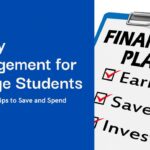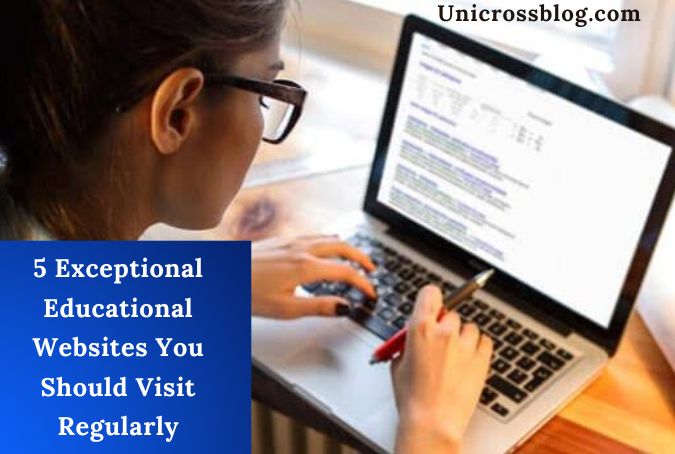As an educator, staying up-to-date on the latest educational resources can greatly benefit your students and enhance your lessons. With so many websites available, it can be challenging to find ones that are truly exceptional.
This article presents 5 outstanding educational websites that you should make a habit of visiting regularly. Curated specifically for teachers, these sites offer a wealth of materials and tools to engage students, supplement curriculum, and inspire creativity.
From interactive games and videos to downloadable worksheets and lesson plans, these websites have something for learners of all ages and abilities. Read on to discover new go-to sites that will make lesson planning easier and keep your students excited about learning. With this carefully selected list, you can be confident you are accessing top-notch resources to continually strengthen your teaching skills.

5 Exceptional Educational Websites You Should Visit Regularly
Expanding your knowledge and staying up-to-date has never been easier, thanks to the wealth of online educational resources available. In this digital age, a world of learning is just a few clicks away. Here are five exceptional educational websites that you should consider visiting regularly to enrich your mind and broaden your horizons.
1. Khan Academy
Khan Academy is a non-profit organization that offers a vast collection of educational videos, articles, and practice exercises across a wide range of subjects, from math and science to history and economics. With its user-friendly interface and interactive learning tools, Khan Academy caters to learners of all ages and backgrounds.
One of the standout features of Khan Academy is its personalized learning experience. The platform tracks your progress and adjusts the content accordingly, ensuring that you receive a tailored educational experience. Whether you’re a student seeking supplemental resources or an adult looking to expand your knowledge, Khan Academy is a treasure trove of information.
2. Coursera
Coursera is an online learning platform that partners with top universities and organizations to offer a diverse range of courses, specializations, and degrees. From coding and data science to business and humanities, Coursera has something for everyone.
What sets Coursera apart is its commitment to providing high-quality, accredited courses taught by renowned instructors. Many courses are offered for free, with the option to purchase a certificate upon completion. Additionally, Coursera offers flexible learning schedules, making it an excellent choice for those juggling work, family, and personal commitments.
3. edX
edX is a collaborative effort between prestigious universities, including Harvard, MIT, and Berkeley, to provide access to high-quality educational content. This platform offers a wide variety of online courses, from introductory-level courses to advanced programs and professional certificates.
One of the unique features of edX is its commitment to open-source learning. Many of the courses are available for free, with the option to purchase a verified certificate or pursue a full degree program. edX also hosts virtual classrooms, discussion forums, and peer-to-peer learning opportunities, fostering a dynamic and engaging learning experience.
4. TED-Ed
TED-Ed is an extension of the popular TED Talks series, specifically designed for educators and students. This platform offers a curated collection of educational videos, animations, and lessons covering a diverse range of topics, from science and technology to art and design.
What makes TED-Ed truly exceptional is its ability to present complex subjects in an engaging and visually appealing manner. Each lesson is accompanied by thought-provoking questions, discussion prompts, and additional resources, encouraging active learning and critical thinking. Whether you’re a teacher seeking supplemental materials or a lifelong learner, TED-Ed is a treasure trove of educational content.
5. Crash Course
Crash Course is a YouTube channel created by the Green brothers, Hank and John, dedicated to providing concise and engaging educational videos on a wide range of subjects. From history and literature to science and philosophy, Crash Course offers bite-sized lessons that are both informative and entertaining.
One of the standout features of Crash Course is its unique approach to presenting complex topics in a digestible and humorous manner. The videos are designed to capture and maintain your attention, making learning feel like an enjoyable experience. Whether you’re a student looking for supplemental resources or someone seeking to expand their knowledge in a particular subject, Crash Course is a fantastic resource.
By incorporating these exceptional educational websites into your regular routine, you’ll unlock a world of knowledge and continuous learning opportunities. Embrace the power of online education and embark on a journey of intellectual growth and personal development.
READ ALSO: Effective Ways to Prepare for IELTS at the Last Minute
FAQs
What are educational websites?
Educational websites refer to online platforms or web resources designed to facilitate learning, knowledge sharing, and skill development. These websites encompass a wide range of subjects, from academic disciplines like mathematics, science, and history to practical skills like coding, language learning, and creative pursuits.
Educational websites often employ interactive tools, multimedia content, quizzes, and assessments to engage learners and reinforce their understanding. They can serve as valuable resources for students, educators, professionals, and lifelong learners seeking to expand their knowledge or acquire new skills.
Why are educational websites important?
Educational websites play a crucial role in modern learning and knowledge dissemination for several reasons:
- Accessibility: They provide convenient access to educational materials and resources from anywhere with an internet connection, breaking down geographical barriers.
- Flexibility: Many educational websites offer self-paced learning opportunities, allowing individuals to learn at their own pace and on their own schedule.
- Variety of Content: They cover a diverse range of topics, catering to various learning needs and interests.
- Cost-effectiveness: Many educational websites offer free or low-cost resources, making high-quality education more accessible to a broader audience.
- Interactive Learning: Through multimedia elements, simulations, and interactive exercises, educational websites can enhance engagement and facilitate better knowledge retention.
How can I identify reputable educational websites?
When exploring educational websites, it’s essential to assess their credibility and quality. Here are some factors to consider:
- Source: Websites associated with reputable educational institutions, organizations, or trusted publishers tend to be more reliable.
- Author Credentials: Look for websites where the content is authored or reviewed by experts in their respective fields.
- Content Quality: Evaluate the depth, accuracy, and objectivity of the information provided.
- Regular Updates: Reputable educational websites often update their content regularly to ensure it remains current and relevant.
- User Reviews and Recommendations: Seek recommendations from educators, professionals, or online communities to identify trusted educational websites.
How can I make the most of educational websites?
To maximize the benefits of educational websites, consider these strategies:
- Set Clear Learning Goals: Identify your specific learning objectives to help you focus your efforts and choose appropriate resources.
- Engage with Interactive Content: Participate in online quizzes, simulations, and exercises to reinforce your understanding and apply your knowledge.
- Collaborate and Discuss: Many educational websites offer forums or discussion boards where you can engage with other learners, ask questions, and exchange ideas.
- Utilize Additional Resources: Explore supplementary materials, such as video lectures, podcasts, or e-books, to deepen your understanding of the subject matter.
- Practice and Apply: Look for opportunities to apply what you’ve learned through projects, assignments, or real-world applications to solidify your knowledge and skills.
Educational websites offer a wealth of resources for individuals seeking to expand their knowledge and develop new skills. By leveraging these platforms effectively and critically evaluating the quality of the content, you can embark on a journey of lifelong learning and personal growth.






